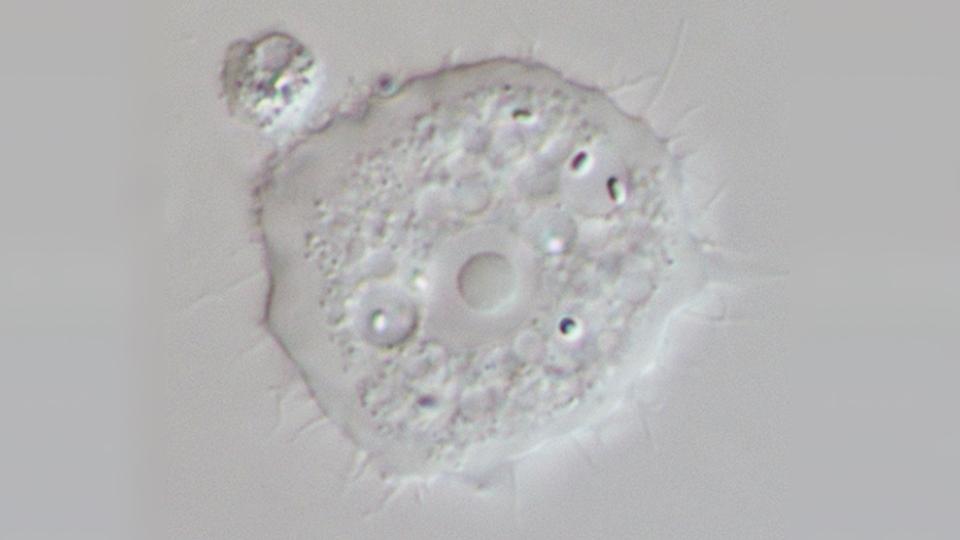EU approves first therapy for acanthamoeba keratitis

Pathogenic Acanthamoeba as seen under a light microscope
The European Commission has approved SIFI's Akantior as the first therapy anywhere in the world for acanthamoeba keratitis (AK), an ultra-rare parasitic infection that can lead to blindness.
Akantior (polihexanide 0.08%), a small-molecule polymer with antiseptic properties, has been cleared in the EU for the treatment of AK in adults and children from 12 years of age,
AK is a severe and progressive parasitic corneal infection caused by acanthamoeba, a free-living amoeba, which can cause unbearable pain and extreme light sensitivity and needs urgent medical attention when diagnosed.
It primarily affects contact lens wearers, responsible for around half of all blindness cases in this group, and the incidence has been rapidly growing in recent years.
At the moment, the main treatment is surgery, including corneal transplants, which have low graft survival rates, although topical antiseptic drops, such as chlorhexidine and lower-strength formulations of polihexanide given with propamidine have been used off-label to treat patients.
"Today's approval represents an important step towards delivering a new global standard of care for patients with AK and builds on 15 years of research and development," said Fabrizio Chines, SIFI's chief executive.
Akantior was put through its paces in the 135-patient, phase 3 ODAK trial, published in the journal Ophthalmology last year, which showed a medical cure rate (MCR) of more than 86% in patients treated with Akantior and was at least as effective as the polihexanide 0.02%/propamidine active control.
The concentration of Akantior means the treatment can be administered using eye drops packaged in single-dose containers.
According to Prof John Dart of Moorfields Eye Hospital and the UCL Institute of Ophthalmology, who was the principal investigator of ODAK, Akantior "is set to become the standard of care for this severe and debilitating disease."
He added: "As the only approved therapy, it has been recommended for use with the detailed treatment delivery protocol used in the phase 3 trial, which eliminates the need for the variable individualised treatment delivery currently used for patients, providing an effective standardised approach that can be followed by any clinician."
At the moment, treatment of AK is often prepared in compounding pharmacies, which can lead to treatment delays.
SIFI plans to launch the new drug in Germany during the last quarter of this year, followed by additional markets in and around the EU, including France, Italy, Romania, Spain, the UK, and Türkiye. Avanzanite Bioscience, SIFI's commercial partner, has rights in 26 European countries where there are approximately 500 AK cases per year.
Main image: Jacob Lorenzo-Morales, Naveed A. Khan and Julia Walochnik, CC BY 4.0, via Wikimedia Commons











